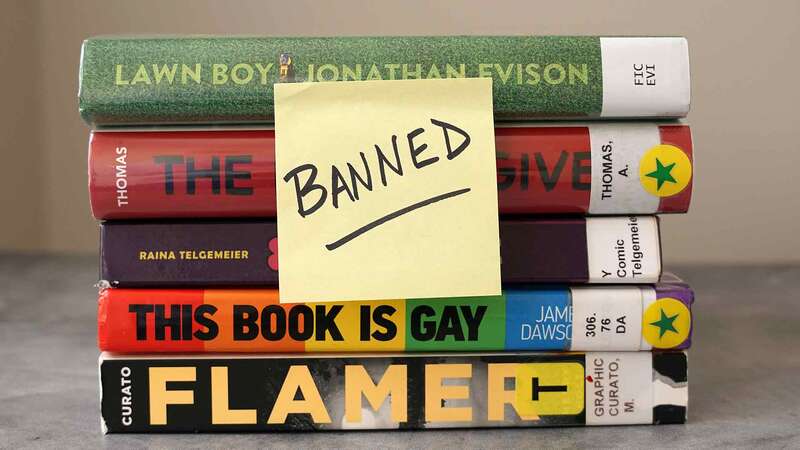You are viewing your 1 free article this month. Login to read more articles.
Orwell's 1984 rockets straight to the top of US book chart
George Orwell’s 1984 (Signet) has rocketed straight to the top of the US chart, in a somewhat turbulent week for the Land of the Free. The edition, published in 1950, sold 25,884 copies—a 479% increase on the previous seven day period and is now overall number one in the US book chart.
President Donald Trump may have only been in power 13 days (a number this reporter had to double check, as it seems like forever) but has already pushed through orders banning Muslims travelling to the US from seven countries, signed a ban on federal money going to international groups that perform abortions and promised to build a wall on the border of Mexico. But sales of Orwell’s dystopian political classic may have been prompted by one of his very first acts in the White House: to complain about the size of the crowd at his inauguration ceremony. Perhaps Americans were reminded of 1984’s Ministry of Truth when press secretary Sean Spicer’s claimed that the Trump inauguration was attended by “the largest audience ever to witness an inauguration, period” (despite photographic evidence to the contrary) which was explained away by Trump adviser Kellyanne Conway as “alternative facts”.
Orwell’s Animal Farm (Signet), containing the famous line “all animals are equal, but some animals are more equal than others”, also re-entered the US top 100, selling 5,254 copies, a 78% increase on the week before. Aldous Huxley’s Brave New World (HarperCollins) charted just below, increasing 131% week on week. Maybe American booksellers were running a the-world-is-ending 3-for-1 deal on dystopian fiction.
The week ending the 29th January, which this chart covers, also included the aftermath of the biggest one-day protest ever held in US history, the Women’s March, which attracted an estimated 3.2 million people across the country. Both Chimamanda Ngozi Adichie’s We Should All Be Feminists (Anchor), in 75th place, and Margaret Atwood’s The Handmaid’s Tale (Anchor) (doing double duty as a dystopian fiction title too), in 87th, flocked into the top 100.
Sinclair Lewis’ It Can’t Happen Here (Signet)—the Nobel Laureate's 1935 novel of a right-wing demagogue who captures the presidency and turns the US into a fascist state—also exploded in sales week-on-week, jumping 410% in volume to chart 81st, in the week it arguably did happen there.
The Constitution of the United States also made an appearance last week. It had previously had a summer sales boost last year when Khizr Khan—the Muslim father of a US solider killed in combat—held up his own copy during a speech at the Democratic National Convention and offered to lend it to Trump, saying: “In this document, look for the words liberty and equal protection of the law.” While Trump has quite obviously ignored this advice, the US book buying public pushed it up the top 100 post-inauguration, hitting 92nd last week. However, this particular edition is rife with controversy: published by the National Center for Constitutional Studies, an ultra-right wing Mormon fringe group, it claims to “recapture the meaning” of the Constitution by annotating the text with religious commentary.
However, it seems it’s not just millennial snowflakes who buy books in America: The Art of the Deal (Ballantine), Trump’s 1980s guide to business, hit 54th place, selling 7,276 copies. Rather like inauguration crowds, though, Trump again falls short of Barack Obama’s figures; the week of the former president’s inauguration in January 2009 saw Dreams from My Father (Three Rivers) shift 48,061 copies.

















